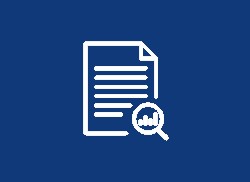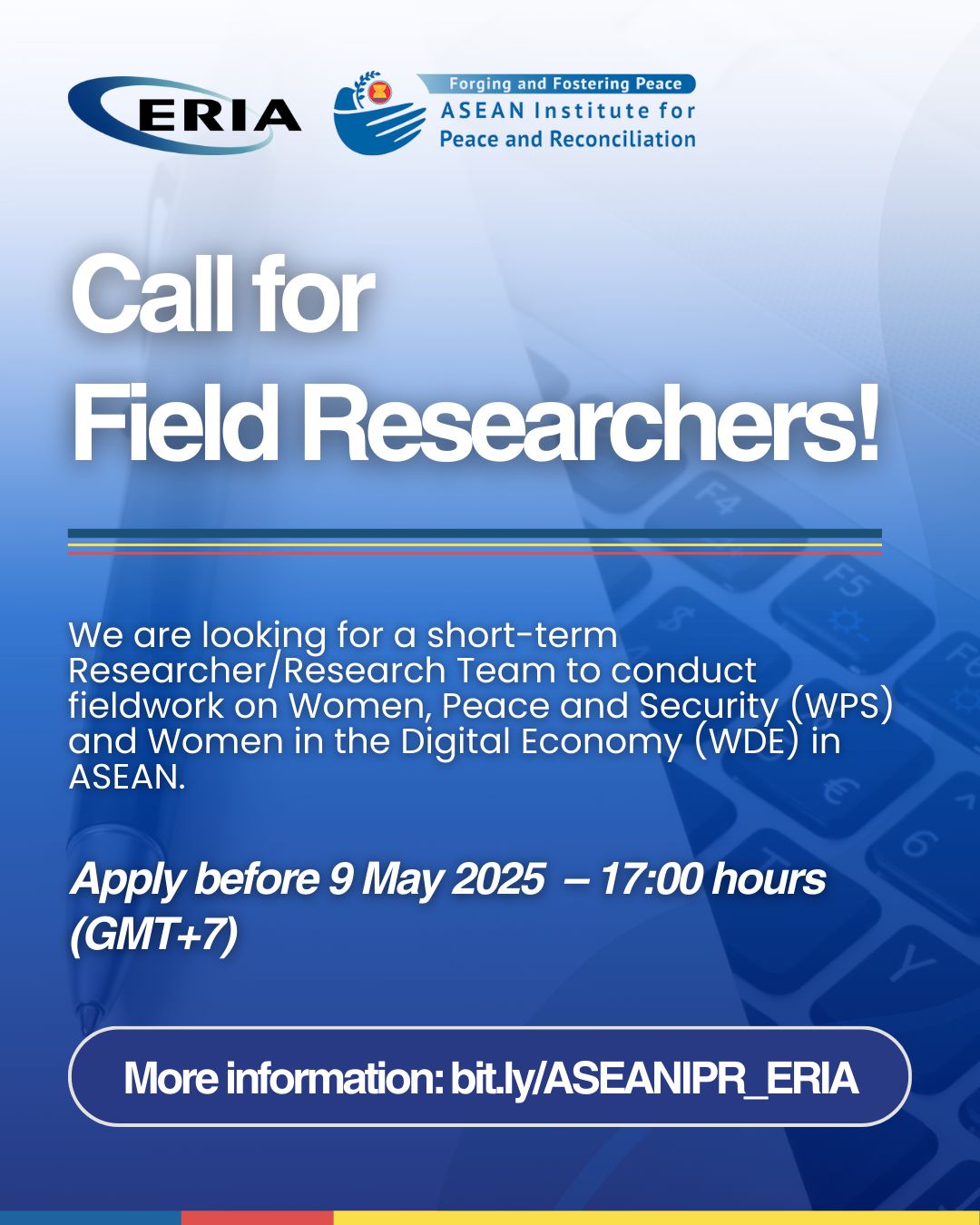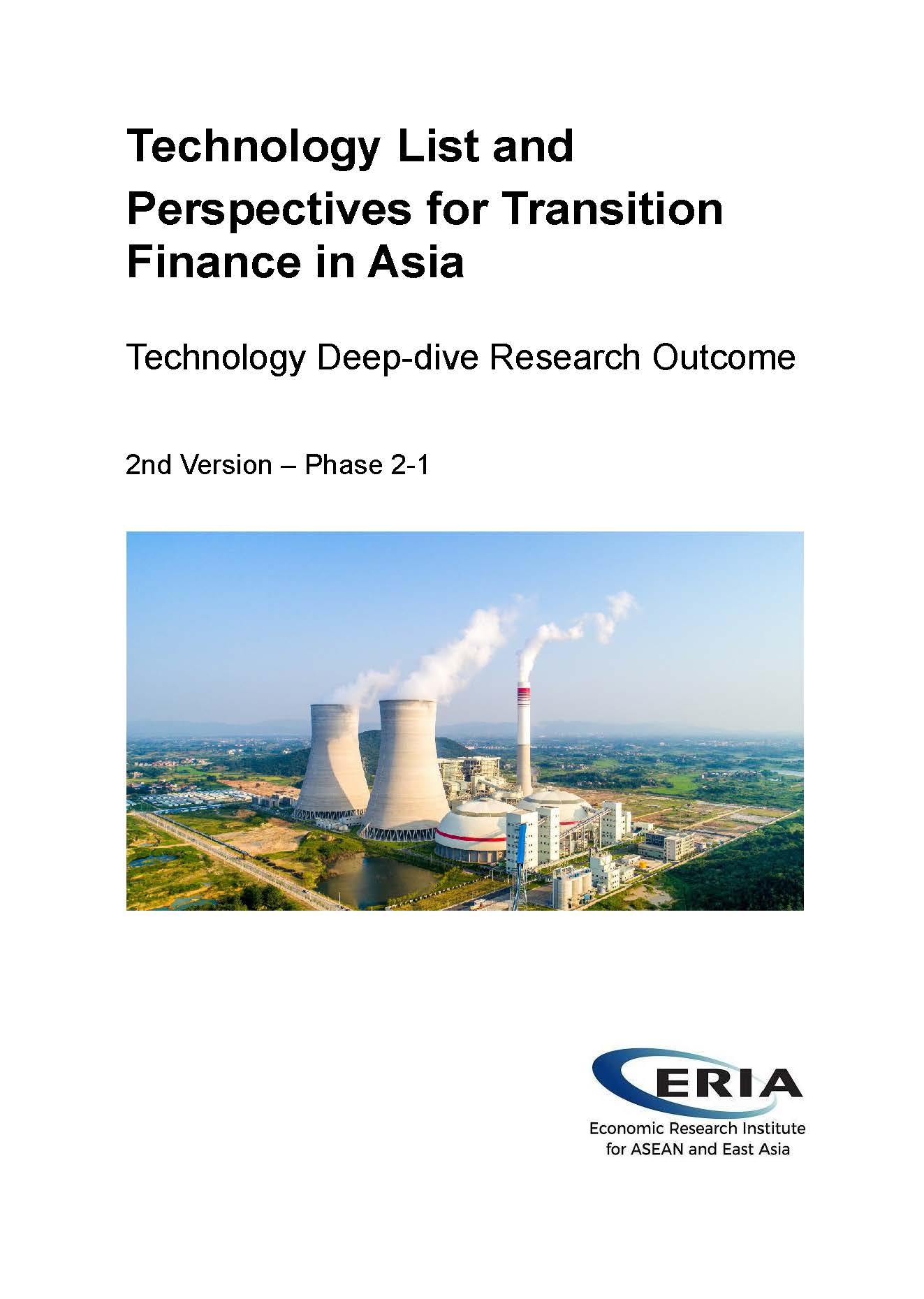Call for Proposals: ERIA Microdata Research, Fiscal Year 2023

Print Article:

The Economic Research Institute for ASEAN and East Asia (ERIA) invites authors to submit research proposals for the ERIA Microdata Research Project in Fiscal Year 2023. This project falls within the scope of one of ERIA’s three research pillars – deepening economic integration. The theme of this fiscal year’s research project is ‘The Rise of Global Economic Uncertainty and Its Impact on Firms, Workers, and Households’. This project comprises country studies by authors mainly from ERIA member countries.
ERIA will provide financial support of $7,000 per paper for the selected proposals. ERIA also covers the travel costs of one author per paper to attend project workshops.
Research Theme
In recent years, the global economy has witnessed widespread and rising uncertainties that have far-reaching consequences on firms, workers, and economies. The most important source of uncertainty is probably the United States–China trade tensions. They began with tit-for-tat tariffs between the United States and China, and are triggering responses and reactions by several countries which are suspected to be inclined towards economic nationalism and protectionism. Whether the shock is permanent or temporary seems uncertain but, if it persists, has the potential to make the global market more fragmented.
The coronavirus disease (COVID-19) pandemic is another global uncertainty shock that firms and workers in all countries have had to grapple with. Concerns regarding infection, as well as governments’ efforts to control the spread of the disease, have disrupted the global supply chain and made both the global and domestic economies more fragmented. Some changes in firm and consumer behaviour will be short-lived, but others are likely to be long-lived or irreversible.
Uncertainties associated with climate change, as well as global, regional, and national initiatives to reduce carbon dioxide emissions, also pose challenges for the private sector and governments. There have been disagreements amongst countries on how to address climate change challenges. Based on efficiency and equity grounds, some policy proposals, albeit aimed at achieving legitimate environmental objectives, may well have the effect of restricting international trade.
The Ukraine–Russia war and the resulting increases in energy and food prices seem to be adding momentum to strengthening or initiating these trade measures for environmental purposes. In this vein, we need to have a better understanding of the various effects of the uncertainties in the global economy on firms, workers, and households.
The main objective of this project is to understand how firms, workers, and households change their behaviour in response to the rise of global economic uncertainties based on rigorous empirical research using microdata, e.g. firm-level data, household data, or labour force surveys. These uncertainties may have diverse effects on firms’ global activities, e.g. through trade and investment, innovation activity, input sourcing strategy, labour demand, and pricing behaviour. While workers and households may be directly affected by changes in firms’ behaviour, such workers and households – as forward-looking rational economic agents – may change their behaviour as they understand how various global economic uncertainties are likely to evolve.
The above-mentioned sources of uncertainty do not constitute an exhaustive list. Considering the data availability (or the lack of), we are open to studies which do not use the most up-to-date data but could shed light on the most recent issues. We expect that this project will also contribute to evidence-based policymaking in response to the rise of global economic uncertainty.
Project Schedule
- Deadline for the submission of proposals: 15 July 2023
- Notification of the selected proposals: 18 August 2023
- First workshop (offline): November 2023
- Second workshop (offline): January 2024
- Deadline for submission of the final report: February 2024
Members of the project are expected to attend the two scheduled workshops listed above.
Proposals
Research proposals should be five to eight pages long, and should contain the following:
- Research question(s)
- Objective and background
- Brief literature review
- Description of data and methodology
- Expected value added
- Policy relevance
- References
Others
The research should be original. Some of the completed research papers may be published as working papers in the ERIA Discussion Paper Series.
Submission
Please email research proposals to Ivana Markus ([email protected]) by 15 July 2023. Early submission is encouraged.
The authors will be notified of the decision of the selection process no later than 18 August 2023.




